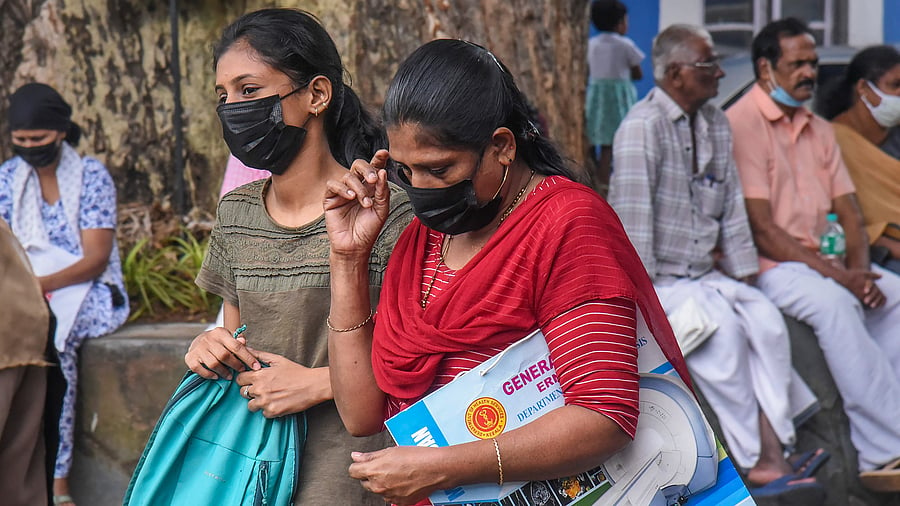
Visitors wear masks at the Ernakulam Government Hospital after rise in number of Covid cases, in Kochi, Monday, Dec. 18, 2023.
Credit: PTI Photo
New Delhi: In the wake of India’s first case of the new JN.1 Covid-19 variant, the Union Health Ministry on Monday asked all states and union territories to improve the surveillance and minimise the risk of transmission by installing appropriate public health measures.
The directive comes ahead of the festive season when people gather in large numbers to celebrate Christmas and the New Year.
In his advisory letter, Union Health Secretary Sudhansh Pant asked the states to monitor and report district-wise Influenza-like Illness and Severe Acute Respiratory Illness cases in all health facilities on a regular basis for detecting the early rising trend of cases.
Considering the upcoming festive season, states have been advised to put in place requisite public health measures to minimize the risk of increase in transmission of the disease. Also they have been asked to carry out more RTPCR tests and send positive samples for genome sequencing.
India's first case of Covid-19 sub-variant JN.1 was detected in Kerala on December 8 in a 79 year old woman. Earlier, a traveller from Tamil Nadu's Tiruchirappalli district tested positive for the JN.1 variant in Singapore.
The new variant has evolved from a particular type (BA 2.86) of Covid-19 virus that carries more than 30 mutations in the spike protein, indicating a high-potential for immune evasion. It has been reported from the USA, China, Singapore and India.
Singapore witnessed a major spike in Covid-19 cases in the first week of December and the dominant strain is JN.1.
“JN.1 constitutes a modest yet notable percentage, projected to potentially encompass 15-29% of circulating variants within the US. Seven cases have been reported from China,” the ministry said in the advisory.
The ministry also said that there was no indication of increased severity from JN.1 and currently there was no evidence of the new variant posing an increased risk to public health as compared to other circulating variants.
States were also advised to ensure adequate testing in all districts as per the testing guidelines and maintain the recommended share of RT-PCR and antigen tests.
